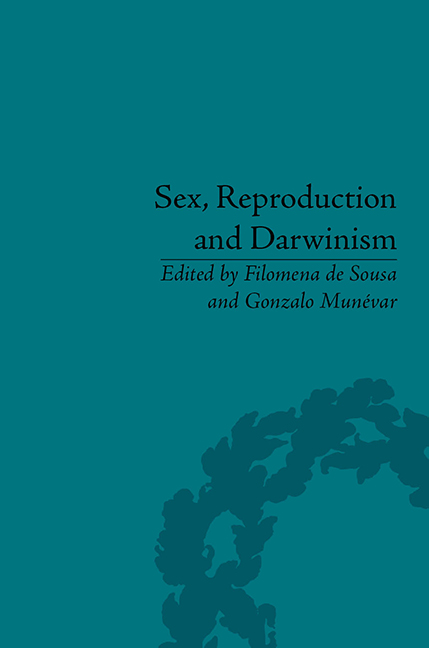Book contents
- Frontmatter
- CONTENTS
- Acknowledgements
- List of Contributors
- List of Figures and Tables
- Introduction
- Part I Reproduction, Mortality and Evolution
- Part II Reproduction without Sex?
- Part III Sex without Reproduction?
- Part IV Sexual Selection and Morality
- Part V Sex, Reproduction and Evolutionary Psychology
- Part VI Eugenics from Natural to Social Selection
- 12 Darwin's Care for Humanity
- 13 Reproduction and Social Selection: The Eugenics Maelstrom of Science, Intelligentsia and Reformers
- Notes
- Index
12 - Darwin's Care for Humanity
from Part VI - Eugenics from Natural to Social Selection
- Frontmatter
- CONTENTS
- Acknowledgements
- List of Contributors
- List of Figures and Tables
- Introduction
- Part I Reproduction, Mortality and Evolution
- Part II Reproduction without Sex?
- Part III Sex without Reproduction?
- Part IV Sexual Selection and Morality
- Part V Sex, Reproduction and Evolutionary Psychology
- Part VI Eugenics from Natural to Social Selection
- 12 Darwin's Care for Humanity
- 13 Reproduction and Social Selection: The Eugenics Maelstrom of Science, Intelligentsia and Reformers
- Notes
- Index
Summary
Introduction
It is often taken for granted that Charles Darwin argued the case for eugenics and Social Darwinism. Both terms were, however, coined after Darwin's death. But did he not advocate eugenic and social Darwinist views before these terms were coined? There are passages in Darwin's work that are usually quoted in order to show that he held such views. I propose a closer and deeper reading of Darwin's text. Darwin has to be read against the background of a variety of contemporary assumptions with which he had to grapple. Above all Darwin's ethical background, his roots in the theory of the moral sense, of sympathy, has to be taken into account. By allowing Darwin to ‘speak for himself ’, I hope to deprive biologistic interpretations of their basis. However, some ambivalences in Darwin's thinking are conducive to misunderstanding and one-sided interpretation.
Darwin's Origin of Species and Malthus's Law
Already in his lifetime Darwin's scientific achievement was acknowledged as a scientific revolution. Darwin succeeded in explaining the origin of species within the framework of natural science. Species come into being by the transformation of other species. Thus he rejects the idea of a special or separate creation of each species by the Creator as well as the idea of the fixity of species. Darwin, however, does not claim to be able to refute by his theory the existence of God.
- Type
- Chapter
- Information
- Sex, Reproduction and Darwinism , pp. 173 - 194Publisher: Pickering & ChattoFirst published in: 2014



